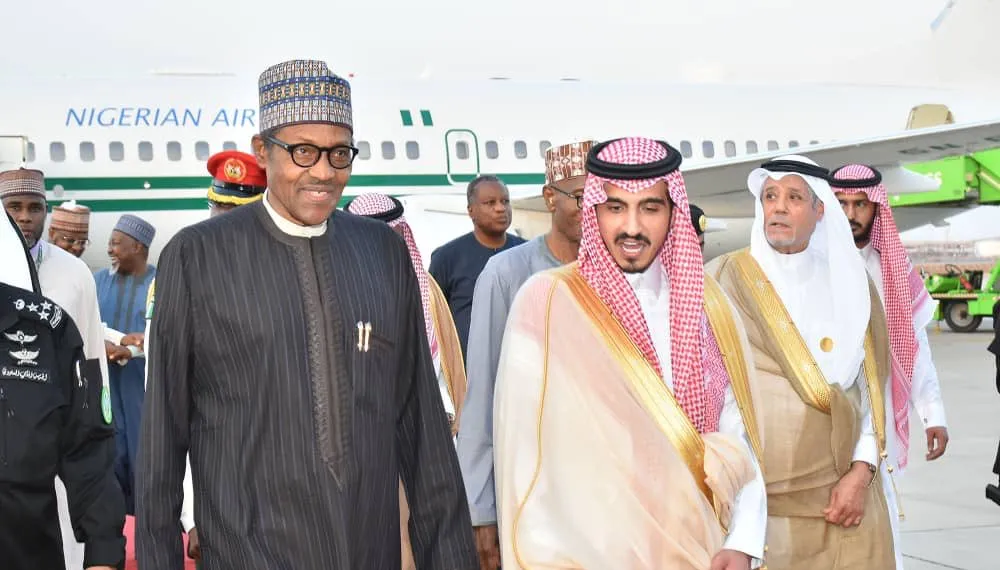By Asmau Ahmad
Nigeria’s President Muhammadu Buhari, has canvassed debt relief for struggling economies, especially, in the wake of the COVID-19 pandemic.
He spoke on Tuesday in Riyadh, Saudi Arabia, at the opening of a three-day “Future Investment Initiative Summit.”
The president called on world leaders and investors to devote more energy to the advancement of humane policies and practices that would guarantee global peace and stability.
President Buhari said this would help in addressing the rising tension and violence across the world.
Buhari stressed that the rising global social unrest was caused by deteriorating social inequalities and unfair distribution of wealth and resources, which according to him, denied the majority the opportunity to participate.
He said the only way to prevent further escalation of global social unrest was for both governments and private sector stakeholders to start engaging in “humane investments,” which would factor the majority into the growth and development loop.
The president said his administration would keep encouraging public and private initiatives to increase investments in health, education, capacity building, youth empowerment, gender equality, poverty eradication, climate change, and food security.
He explained that Nigeria’s economic reforms, which focus on ‘humane’ investments, are ideal for investors looking to have profitable returns while positively impacting the citizenry.
“Investing in humanity is the right thing to do. I strongly believe the historical under-investments in ‘humane projects’ is the genesis of most of the insecurity and socio-economic challenges the world is experiencing today.”
Speaking on the theme of the summit, “Investing in Humanity,” President Buhari said the Nigerian perspective was to focus on people-oriented development policies, with diversification from oil to more inclusive sectors, such as agriculture, Information and Communications Technology (ICT), and mining.
He said his government was also channelling its energies into tackling corruption, insecurity, and climate change, as well as introducing social investment programmes.
According to him, the federal government would continue to sustain efforts to combat the COVID-19 pandemic and mitigate its negative socio-economic impact on the societies, build resilience and achieve recovery.
“It is, therefore, my hope that this session will leverage on the enormous economic opportunities that lie ahead in order to satisfy the prevailing needs of our people and planet.”
The president stated that investment in humanity must also take into consideration the debt burden on nations, which had been worsened by the COVID-19 pandemic.
He said, “We cannot invest in humanity without relieving our countries from the crushing effects of the debt burden, especially, when the COVID-19 pandemic has increased the risk of deepening the debt portfolio of poor countries.
“These nations increasingly allocate more and more resources towards external debt servicing and repayment at the expense of the health, education and other services that contribute to the overall wellbeing of their populations.”
Buhari told the gathering that Nigeria’s diversification effort had continued to yield result, particularly in agriculture.
As a means to further improve and reposition Nigeria’s economy to attract investors, the president said the, “e-Naira, the electronic version of our national currency, which puts us on track to become the first African country to introduce a Central Bank Digital Currency,” was launched on October 25.
He said, “We believe this and many other reforms will help us increase the number of people participating in the banking sector, make for a more efficient financial sector and help us tackle illicit flow of funds.”


